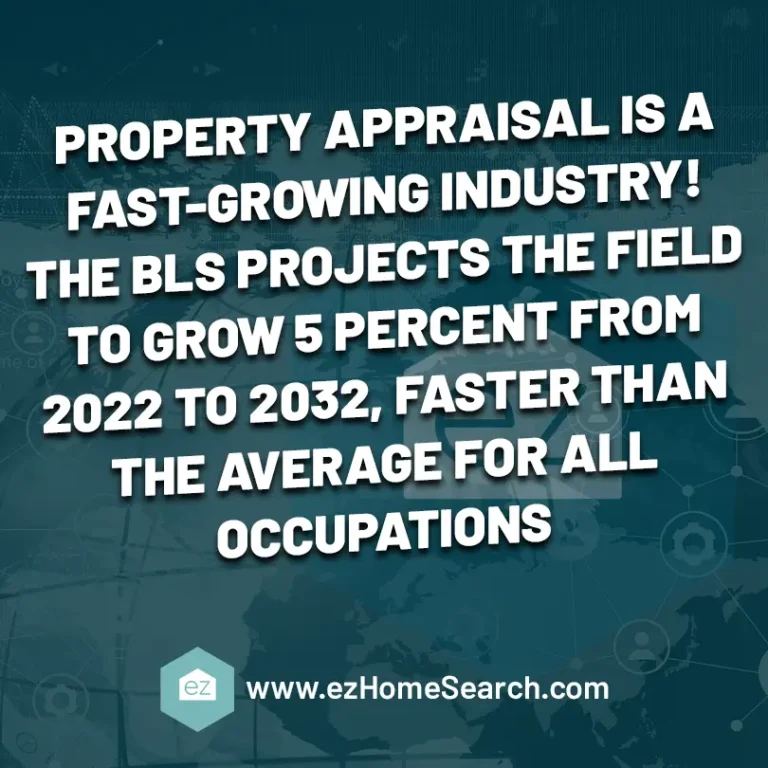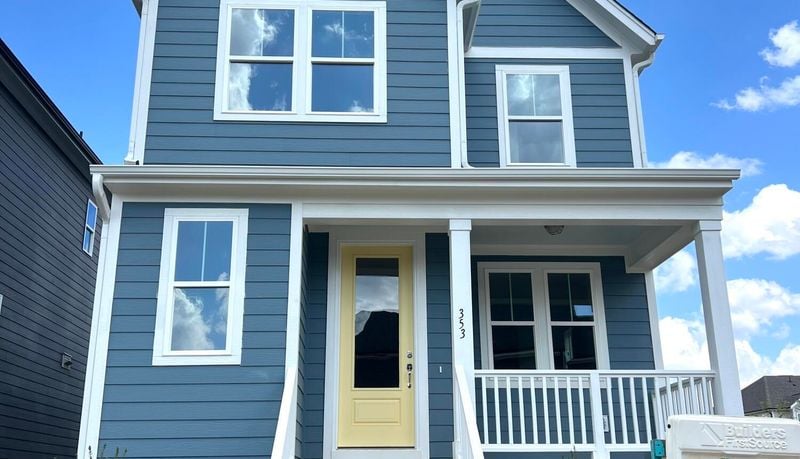Understanding Home Appraisals in Real Estate Transactions
The home appraisal is one of the more nail-biting parts of buying or selling a home. Many a deal has gone up in smoke due to the report. But a home appraisal should be no big deal if you’re prepared.
Considering how 78% of home buyers financed their purchase in 2023, home appraisals are a crucial part of the real estate transaction process. The report helps determine how much a mortgage lender will lend to a buyer. But that’s the only way home appraisals are used.
Here is what to know about the home appraisal, its impact on your real estate deal, and how these reports can be used.
What is a home appraisal?
A home appraisal is a crucial step in buying or selling a home. It is a detailed report specifying a property’s fair market value as determined by an expert, third-party appraiser.

How appraisals are done
The appraiser, who is usually hired by the mortgage lender, assesses several factors in determining the value of a home. These include but are not limited to:
- The size and condition of the living space
- The lot size and its features (location, views, ponds, beachfront, etc.)
- The values of comparable homes or recent sales in the same area
- Any upgrades or renovations that may have been done to the property
Based on these factors, the appraiser then provides an estimated value for the property.
The sales comparison approach is the most common method of arriving at an estimated property value. This approach compares the home to similar properties that recently sold in the same immediate neighborhood or region. In the case of condos, it can be within the same building or complex.
What is considered a comparable property?
A comparable property, also known as a “comp,” is a recently sold home in the same area that is similar in size, age, and condition to the appraised property. When possible, these would be other properties within the subdivision, development, or designated neighborhood boundary.
The appraiser uses these similar factors as a benchmark to determine the value of the subject property. They do their best to pull the most recent sales activity and homes within a tight radius of the appraised property.
Other real estate appraisal tactics
Cost-approach appraisal is another common method used, especially for new homes. This approach looks at the cost of building a similar home in the same location and adds or subtracts value based on any renovations or upgrades that differ from the subject property.
For rental or investment properties, the income approach may be more applicable. It evaluates the property’s potential income based on location, features, and condition. The comps may include the rental rates of similar properties.
Who does the appraisal

As mentioned earlier, the appraiser is typically hired by the mortgage lender. However, it’s worth noting that they are not affiliated with either the buyer or seller and must remain unbiased in their property assessment.
Home appraising is a separate but related industry regulated differently in each state. Usually, it will have its own overseeing board, training, and licensing requirements, much like mortgage loan officers and real estate agents have different regulations and licensing requirements.
Generally speaking, most home appraisers must undergo extensive training, often lasting about 1.5-2 years in a formal home appraisal program with scripted coursework. Next, they take a state licensing exam, which may be followed by an apprenticeship period before becoming certified independent appraisers.
As you can see, a lot goes into becoming a certified home appraiser. The whole process can take 3-5 years, depending on the state.
What’s not included in a home appraisal
A home appraisal is not the same as a home inspection.
A home inspection focuses on the property’s condition but doesn’t assign a financial value to the home. An appraisal may see items affecting the property, but it solely assesses its value in light of its current known condition. As such, an appraiser will not evaluate things like:
- The physical state of appliances or plumbing
- Pest infestations (unless it has caused structural damage that impacts home value)
- Movable structures like sheds or above-ground pools
- Children’s playgrounds and swing sets
Instead, they focus on the overall condition of the property and any significant issues that may affect its value. So, while they may note cracking foundations or roofing damage, for them, it’s more about how those structural flaws negatively impact the home value against similar properties in good condition.
The home inspection report will better detail these flaws and their impact on the home’s livability. Learn more about what home inspections will and won’t reveal.
How It Is Used
The home appraisal is used by both buyers and sellers. It provides buyers a realistic idea of what they should pay for the property. For sellers, it gives a more data-backed estimate of their home’s value as they set their asking price.
Anyone financing their home purchase or refinancing their mortgage through a lender must have the home appraised. Lenders use the report to determine how much they will lend for the property based on its appraised value. Your home is their collateral should you stop making your mortgage payments, so they want to ensure their investment in the home is accurate in case they need to foreclose and recoup their investment.
Mortgage lenders are required to give the buyer a copy of the home appraisal report as soon as reasonably possible and no later than three days before your closing. And even though the mortgage lender is ordering the home appraisal, the buyer pays for it as part of the closing costs.
But lenders aren’t the only ones who use home appraisals. Sometimes, homeowners order a home appraisal before listing the property to gauge a sale price better based on current market conditions. This is more common with properties that have been extensively renovated or if the property has particularly unique features. A third-party review can help figure out how to list the property to sell.
Cash buyers may decide to order a home appraisal, but it’s not required. Their decision to seek a home appraisal may be because they plan to renovate the property and want to better gauge their budget and After Repair Value (ARV). Or it’s a matter of ensuring their cash offer is fair. In this scenario, the real estate transaction should not be contingent on a home appraisal–in other words, no re-negotiation of the price after the report.
What happens when home appraisals go wrong
While most home appraisals go off without a hitch, there are times when they can affect the outcome of a real estate deal. For example:
- If the appraised value is higher than the sale price, it’s a win for the buyer. They now have more equity, and lending to them is less risk from the lender’s point of view (less of a loan-to-value ratio).
- On the other hand, if it comes in lower than the sale price, it could lead to re-negotiating for both parties. For buyers, this means potentially having to come up with more cash for a down payment because their bank’s financing is for less money. Alternatively, sellers may need to reduce their asking price. If they don’t, the sellers risk losing their buyer if they can’t secure additional financing to cover the difference.
- In extreme cases where the appraisal is significantly lower than the sale price, the lender may decide not to fund the loan altogether. This situation is known as “lender pull out” and can be a deal-breaker for buyers and sellers.
What to do if you feel the home appraisal is wrong
Sometimes, the difference in value may not make sense in the buyer or seller’s eyes based on what they know about the home and the market. Home appraisers are ordered to be objective, and most professionals do their best to make informed, data-backed decisions. They know how much is at stake with these reports.
But no process is perfect. If you feel the home appraisal is inaccurate, you can take steps to dispute it. However, this process may be lengthy and costly. Even more disappointingly, it ultimately may not change the appraised value.
The best course of action is to ensure that all necessary information has been provided to the appraiser beforehand. This includes any upgrades or renovations done to the property, any comps you feel were overlooked, and any other relevant information that may impact the value.
Protesting the home appraisal report starts with requesting a re-valuation or filing a complaint with the lender.
Additionally, you may consider ordering a second appraisal, known as a “field review.” In this case, an appraiser returns to the property to review in person again. This may be an added expense, but it may provide a more accurate assessment of the property’s value, especially if you present paperwork justifying a value adjustment.
If you order a second appraisal, carefully review the first appraisal to find out what information the appraiser is missing. Have documentation that supports your case, such as new, updated comps, receipts for materials and labor, or new survey lines for the lot.
Should the lender not address your concerns, you can contact their regulator or the Consumer Financial Protection Bureau to escalate the process.
More on home appraisals
Determining the fair market value of a property is an essential part of the real estate transaction process. Buyers, sellers, and loan originators rely on these reports to ensure all parties know the financial value of what they’re getting. If you have any questions about the home appraisal in your transaction, your real estate agent can be a knowledgeable resource.
Start Your Home Search
Preston Guyton
Share this Post
Related Articles
Real Estate Information
The Role of a Buyer’s Agent in Real Estate Transactions
Real Estate Information
Who’s Buying What? Exploring Home Buyer Generational Trends
Real Estate Information
Your EZ Guide to Idaho Property Taxes
Real Estate Information





